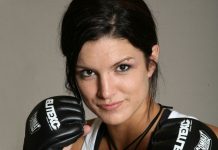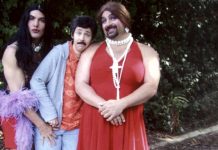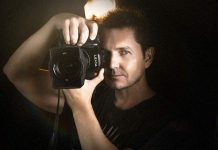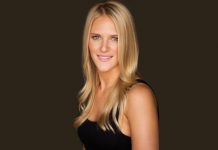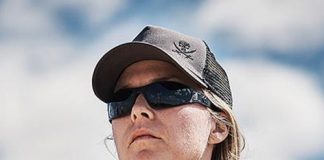Becoming a stuntwoman is especially difficult in an industry where men often play female characters. But more performers are breaking through.
A woman is doubled over on a platform, clutching her stomach. She screams, then flops 4.5 metres (15ft) on to a giant airbag. To my left, a dozen people are darting through a maze of cardboard boxes, yelling and pretending to fight each other. On the other side of the hall, an explosion is being replicated – a group of people sprint forward only to be violently yanked backwards on to crash mats.
I’m on an industrial estate in Purfleet, Essex, where the British Action Academy runs its British Live Action Stunt Training course – a three-day taster scheme for aspiring stunt performers.
Everyone here today is seeing if they really want to become a stunt actor. “The training costs a lot of time, money and commitment, so why go through all that just to discover this isn’t what you want?” says Tony Lucken, a trainer on the course with more than 26 years’ experience. The most reliable route into the industry in the UK is through the elite British Stunt Register. A candidate has to achieve qualifications to the required level in six disciplines, including gymnastics, trampolining, diving, horse riding and driving, and a mandatory martial art. The training itself costs about £30,000. “It’s not something that you just have a go at,” says Ben Dimmock, a stunt performer and stunt coordinator who has doubled for Matt Damon as Jason Bourne.
But as hard as it is to break into the British stunt industry, it has been especially difficult for women to work in what was predominantly an all-boys’ club. As of September, there were 394 members of the British Stunt Register, 62 of whom were women.
Tina Maskell has been a stunt actor for 38 years. She doubled for Judi Dench on Skyfall and Dawn French on the Vicar of Dibley, although she assures me that French fell into that puddle herself. “When I came into the industry there were only seven women. We serviced the whole of the industry,” Maskell says. “There were more opportunities because there were so few of us. Now it’s a very different story.” Maskell adds that unless you are a perfect double for someone, you might find it difficult to get work, but, overall, more doors have opened for women.


